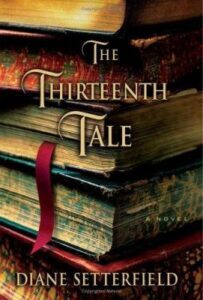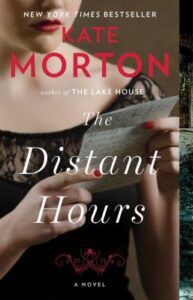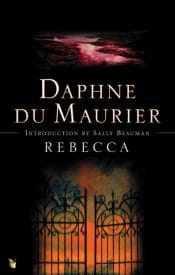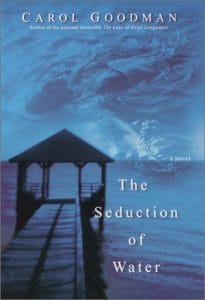Title: The Thirteenth Tale
Author: Diane Setterfield
Page Count: 406 pages
Genre: Gothic Fiction; Psychological Suspense
Tone: Atmospheric, Dramatic
Summary:
When her health begins failing, the mysterious author Vida Winter decides to let Margaret Lea, a biographer, write the truth about her life, but Margaret needs to verify the facts since Vida has a history of telling outlandish tales.
SPOILER WARNING:
These book discussion questions are highly detailed and will ruin plot points if you have not read the book.
The Library is happy to share these original questions for your use. If reproducing, please credit with the following statement: 2016 Mount Prospect Public Library. All rights reserved. Used with Permission.
1. In many ways, this is a book for book lovers, and there are multiple passages that speak to readers. For instance, early in the book (p. 32) Margaret contrasts her reading as a child to her reading as an adult.
- a. Do you recall why Margaret says she prefers old novels? (see p. 29)
- b. Her father advocates for contemporary writing, ones “where the message is that there is no end to human suffering, only endurance…endings that are muted, but which echo longer in the memory.” Do you side with Margaret or with her father? Is it that simple?
- c. Given those characterizations, does The Thirteenth Tale resonate more as an old novel or as contemporary writing?
2. Let’s dig in by putting ourselves in Margaret’s place. We’re living our quiet bookshop lives, and we receive a letter without real context or satisfactory explanation. Why would we (as Margaret) even consider accepting the invitation?
3. In one interview about her career change from academia to author, Setterfield notes her realization that “whilst books are extraordinary, writers themselves are no more or less special than anyone else.” How might we say this is reflected in the novel?
4. Would you call The Thirteenth Tale a ghost story? If so, who are the ghosts? Who is haunted?
5. What do biography and storytelling have in common? How are they different? Would you rather have the truth or a good story?
6. Were you surprised at Miss Winter’s true identity? What points Margaret (and the reader) to this conclusion?
7. Who was saved from the fire? How can we be certain?
8. Margaret realizes that “plunging deep into Miss Winter’s story was a way of turning my back on my own” (p. 282). Was this true? Did it work?
9. Angelfield (the house) becomes an external symbol of the family and its changing condition. Can you think of examples of when this seems to be true? Which other rooms or homes reflect their inhabitants?
10. Miss Winter tells Margaret that “it doesn’t do to get attached to secondary characters. It’s not their story. They come, they go, and when they go they’re gone for good. That’s all there is to it.” (p. 191-2). Does that prove to be true in her story? In the book?
11. How essential is what we learn from Hester’s diary?
12. What did you think of the “game” of the conveyor belt and Margaret’s later admission (to us) that she did love books more than people?
13. In what ways does The Thirteenth Tale fit the characteristics of a Gothic novel?
14. Several classic Gothic novels are named, some multiple times. Did this enhance the experience for you? Did it seem too “on point” or distract by the comparison, or did you find it original?
15. What other recurring symbols seem to be present in The Thirteenth Tale?
16. Did you like the structure: Beginnings, Middles, Endings, Beginnings? How is this choice significant?
17. In which character names did you find significance?
18. What patterns seem to be repeated throughout the story?
19. Aurelius wonders if it’s better to have no story than one that keeps changing, and Margaret’s mother thinks a weightless story is better than one too heavy. What do you think is better for these characters? In general?
20. How effective is the choice of title? What does it contribute to tone and to theme?
21. The idea of siblings, especially twins, is central to the story in many ways. How do the different relationships affect the characters and themes? Did this enhance your experience of the story?
22. Did you find the ending satisfying? Explain your answer.
23. The question of precisely when The Thirteenth Tale takes place has sparked much speculation. As you read, did you have a time period in mind? Would you have preferred this be specifically stated? What is gained in leaving the time undefined?
24. Is there anyone today who might be Vida Winter’s contemporary counterpart: someone who has written multiple bestsellers, whose books are among the most borrowed from libraries, yet who is reclusive, “as famous for her secrets as for her stories”?
25. The Thirteenth Tale was the inaugural selection of “Barnes & Noble Recommends” in which each season one book was chosen as riveting and of extraordinary quality worthy of stimulating discussion, one that they were sure you would recommend to others. Their introduction opened with a single word: unputdownable. Would that word characterize your experience with the book? Would you recommend it to others?
Want help with your book discussion group? Check out tips, advice, and all the ways the Library can help support your group!
OTHER RESOURCES:
- official website of author Diane Setterfield
- The Guardian interview with Setterfield
- audio: Setterfield talks about her inspiration and process
- BookPage feature on the release of The Thirteenth Tale
- The Independent review of The Thirteenth Tale
- LitLovers book discussion guide
- The Wall Street Journal explains “The Eerie Allure of the Gothic“
- video clip from the 2013 BBC movie adaptation
READALIKES:





